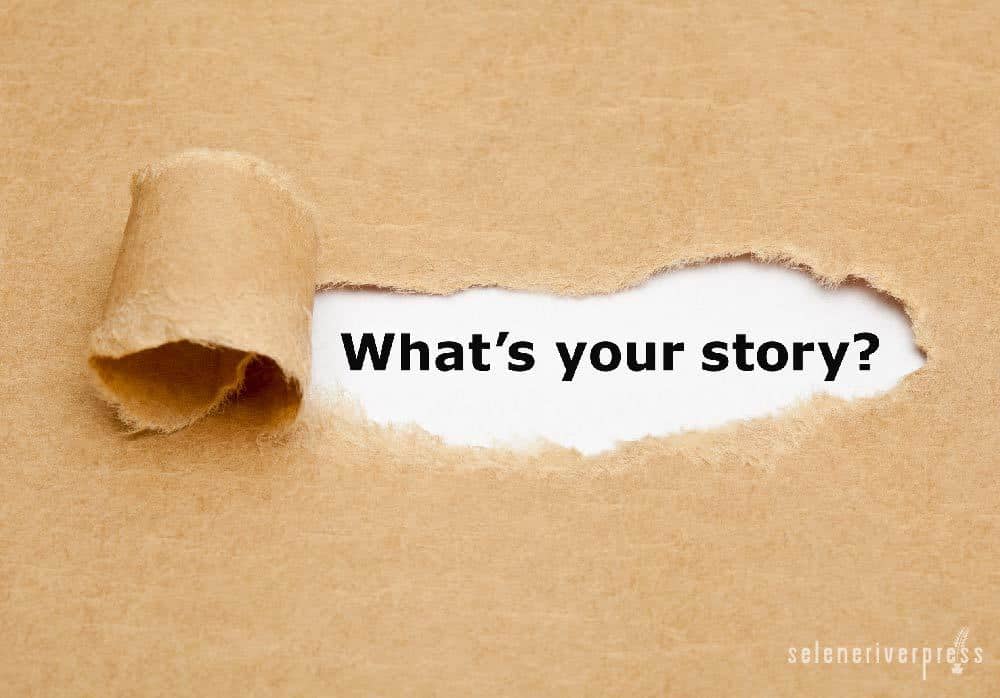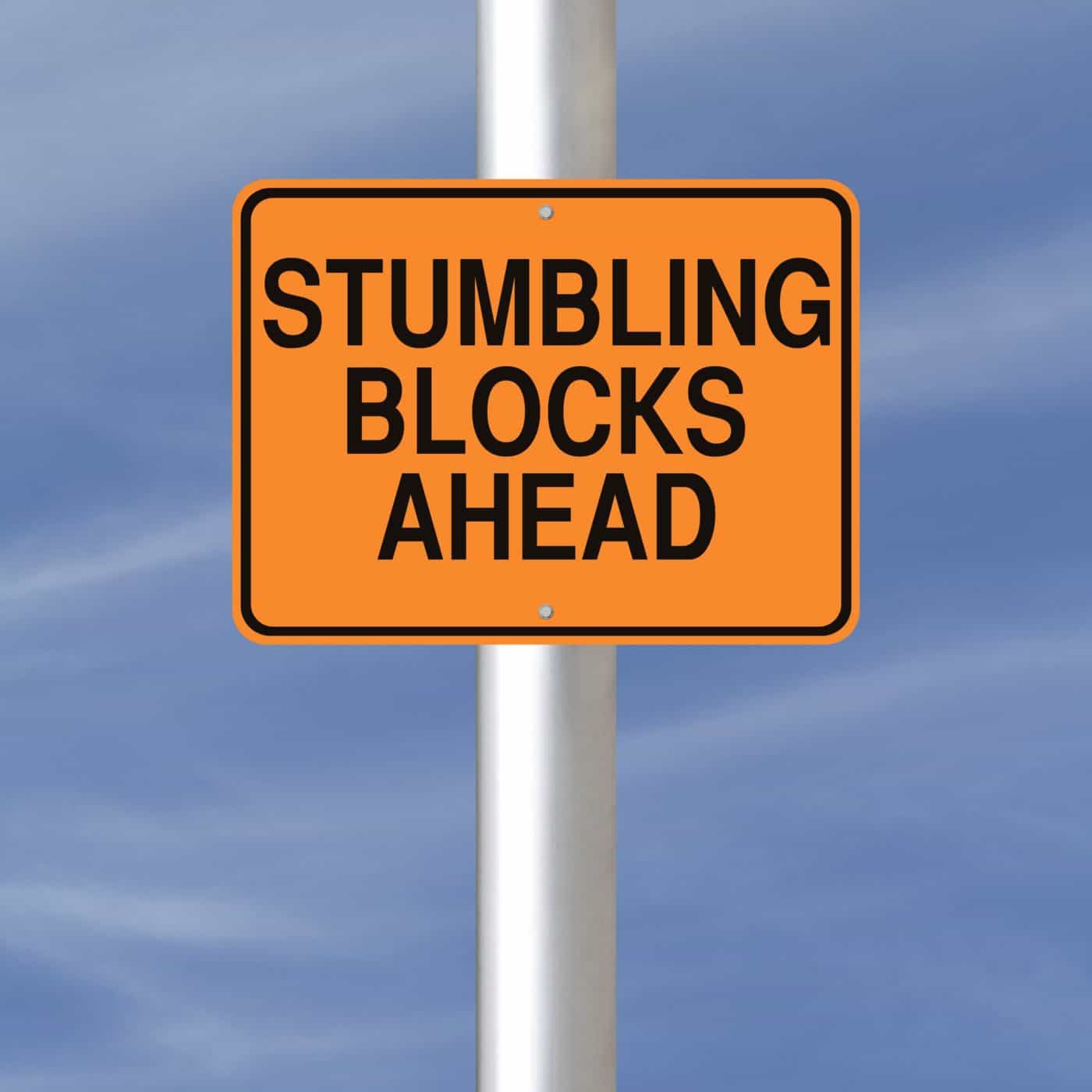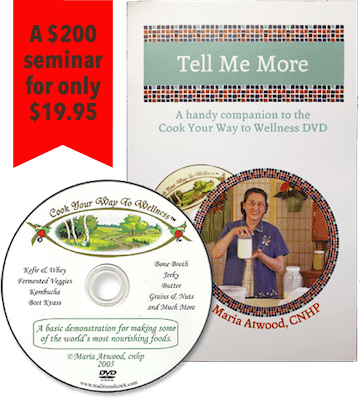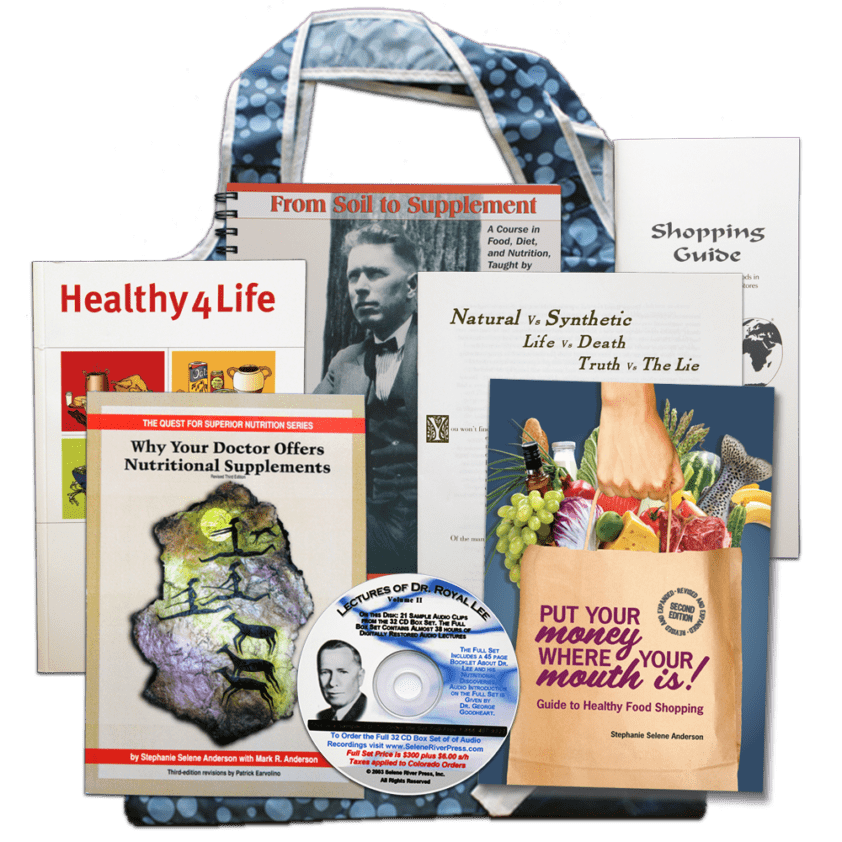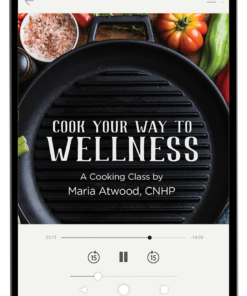I was recently going through my closed client files, some of which I’d not looked at for a few years. As I read each file, I suddenly felt nostalgic. It was akin to pulling out old boxes of family photos and simply sitting and pondering over each one of them. Some photos bring us a smile, while others bring sadness. However, in either case we can always attach a story to them. In this case, the contents of a particular file told a wonderful story of sharing in those days when I’d just started to consult with clients.
This file was labeled “The Yeah, But Story.” In addition to my clinical notes, I found one other sheet of paper titled “The Million Dollar Wallet.” I’d forgotten about this little treasure, and upon finding it I thought others might be able to use it the next time they try to convince friends or family members of the importance of a nutrient dense diet, even the ones who had never listened before.
No matter how hard you try to help them, their excuses are a mile long. Do you know anyone who turns a deaf ear to your pleas that they start developing healthier eating habits? Have you finally given up? If yes, you’ll likely be able to use my recommendations below.
The “Yeah, But” story is about a close neighbor who’d come to me seeking help with numerous health problems, including arthritis, weight gain, listlessness, and frequent depression. As I listened to her complaints and charted her symptoms, it became obvious that her diet was utterly void of any nutritional value. Like many of us reared on the SAD (Standard American Diet), for the most part she’d obviously been using canned, frozen, and/or ready-to-eat foods. She volunteered that her favorite was pizza from her neighborhood restaurant, which she would order twice a week!
Thinking that it would be a snap to get her going in the right direction, I explained that a change in her eating habits and some whole food supplements could produce profound healing—both physically and mentally. Her eyes lit up, and she seemed relieved that her problems could be so easily resolved. I invited her to my next nutritional class, where I could detail the how-to of transitioning to a nutrient dense diet and the supplements that would be best.
The classes were relatively small, consisting of between five to seven people. They were comprised of short lectures and small samples of the foods I was teaching about, primarily fermented foods, bone broth, crispy nuts, and other recipes from Nourishing Traditions. During the entire session—and sometimes even before I finished a sentence— she would disrupt the class and exclaim:
“Yeah, but I don’t like to cook.”
“Yeah, but I don’t have the time.”
“Yeah, but I don’t have the money.”
“Yeah, but I don’t like the taste.”
Talk about frustrating! But, I suddenly remembered that I’d made a copy of a great story given to me by a dear mentor. It’s called “The Million Dollar Wallet.” I knew if I read it to the class, it would no doubt bring closure to all of her “Yeah, but…” excuses, and she would either cooperate or leave!
The story was given to me by a wise holistic practitioner, and I was told to give a copy to those people who weren’t willing to take the advice and recommendations I gave them due to some perceived inconvenience. Here then is the story:
The Million Dollar Wallet
A millionaire gentleman who lived in a fancy downtown high-rise apartment decided one day to walk down a few blocks to a corner cafe and have lunch. As he neared the cafe, he looked down and saw a very ragged older women sitting on the corner with a sign that read, “Homeless, please help.” While having lunch, and being both generous and very wealthy, he made the decision to write the beggar lady a million dollar check!
He then stopped at a nearby shop and purchased a small, plain black wallet and slipped the check inside. When he arrived at the corner where she sat with her sign, he stopped and told the lady that he had a gift for her. He handed her the wallet. Looking at it curiously, she opened it and pulled out the million dollar check and, shockingly, said to him…“You, you must be joking, this can’t possibly be real.” He assured her that he was very wealthy and that it was indeed a valid check. She could now go and do whatever in her life she wished.
She stood there quietly for a few minutes and repeatedly took out the check, looked at it, and put it back. She finally looked up at him and quietly said, “I am sorry, sir, but I cannot take this gift.” She handed the wallet with the check inside back to him. In total surprise and dismay, he inquired why in the world she did not want it, and with doleful eyes she simply told him that she would like the money but that she did not like the color of the wallet!!!
Of course, this is an exaggeration. However, the moral of the story is that sometimes, no matter how generous you are with your time, knowledge, money, and willingness to help others, in the end you should expect some failures, and you should not feel guilty.
You will no doubt encounter people like the beggar lady, who was unable to grasp the core benefits of the gift. She wouldn’t accept the small part of the gift that she perceived as a negative, and therefore ended up with a total loss!
The same goes for the client I mention above, who can only focus on the “Yeah, Buts” when it comes to doing what’s necessary for the gift of good health. In addition to giving the “Million Dollar Wallet” story to friends and family who keep turning a deaf ear to your earnest desires to see them get well, lets have a little discussion about the stumbling blocks to healing.
Yeah, But I Don’t Like to Cook
I try to impress on anyone thinking about the transition to a healthier diet to, first and foremost, understand foods intellectually, by reading about them. Once people understand the value of the foods they should be eating, they’ll naturally become enthused about the cooking aspect. One inexpensive and power-packed book I highly recommend is Put Your Money Where Mouth Is! I encourage everyone I know, even veteran cooks, to make this a must-read.
In all fairness, I do think that many people who avoid healthy eating have a legitimate dislike of cooking. However, it may help your case to remind them that cooking is simply a fact of life. And if they sincerely want to avoid serious and sometimes devastating illnesses, they cannot continue to put nutrient void foods in their body and expect anything other than bad results. Quietly and patiently impress on them that they must be willing to learn at least some basic traditional cooking skills. Rome was not built in a day! So too will it take some time before they get the hang of learning how to cook or find someone who can teach them how to cook one healthy dish at a time.
Yeah, But I Don’t Have Time
On my website I have a page called “My Personal Health Perspective,” where I make a thought-provoking statement that has helped both myself and others chalk up more time to dedicate to health, both physical and mental. I invite you to ponder these words:
Would you sincerely like to improve your overall health or help bring healing to a current health issue? If yes, others and I can testify that there must first be a serious willingness to replace activities that do nothing to nourish the body, mind, and soul with those that genuinely do!
Without this commitment, you will no doubt flounder and later say, “It didn’t really work for me!” This commitment may even mean reconsidering your career, working less hours, and, of great importance in my case, reducing my involvements in clubs, organizations, and/or other worthy but time consuming endeavors that had kept me from being able to focus on the one thing that WILL and did allow me to do more…Better health!
Yeah, But I Don’t Have the Money
There’s truly a misconception about how expensive it is to move from the overly processed foods in the SAD (Standard American Diet) to organic fruits and vegetables as well as take advantage of other local resources that are available. In my blog post “Healthy Eating on the Cheap,” I discuss in detail the Seven Steps to Frugal Healthy Meals.
I invite you to go there now and read this post as it talks specifically to the money issue. Remember, as the saying regarding our health goes, “You either pay now or pay later…with massive medical bills.” (Smile)
Yeah, But I Don’t Like the Taste
Ah, yes, taste, which is so individual that we cannot, in my humble opinion, dictate that anyone eat what is obviously not to their liking. That being the case, I never try to force people to eat food they truly don’t like the taste of. I do, however, recommend that when you start to consume foods like kefir and/or other fermented foods—which can be tart if you haven’t traditionally consumed them before—to give yourself a chance to develop a taste for these special and unique flavors, so they may in time become palatable to you.
According to TasteScience.com, when it comes to taste sensitivity, there are three aspects we need to consider.
The three major aspects of an individual’s taste buds to consider are:
- The number of taste buds and trigeminal nerve
- The sensory capacities of those taste buds and trigeminal nerve
- The response of the brain to signals from the taste buds and trigeminal nerve
I invite you to tour all of the science on taste outlined in this article. I also suggest reading more on the trigeminal nerve, which is a major component of taste.
So, what’s the bottom line? We’re told that the dying words of Dr. Weston A. Price were, “You teach, you teach, you teach.” And Dr. Royal Lee, the founder of Standard Process whole food supplements, has proven to us in many and varied ways that achieving good health is crucial to our earthly happiness and the ability to take proper care of the people we’re responsible for.
Should you be in a position of leading one or more persons to the truth of the legacy that these great health pioneers devoted their lives to, you too will enjoy the fruits of your teaching, even if your words fall on deaf ears.
Both Selene River Press and the Weston A. Price Foundation offer a plethora of information on how you can be a part of this worthy cause. In the comments section below, share the story of how you convinced at least one person to transition to a nutrient dense diet. Your words will give others hopes of helping someone they haven’t yet been able to reach.
Value Added Holiday Gifts for Learning and Teaching
Cook Your Way to Wellness – If you’re new to fermenting, Nourishing Traditions, or the Weston A. Price Foundation, this detailed 90-minute DVD and the accompanying Tell Me More booklet is for you. A $200 seminar for $19.95! Or view it at Vimeo on demand!
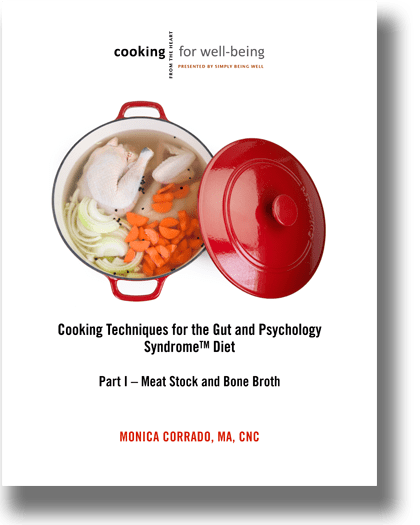 Cooking Techniques for the Gut and Psychology Syndrom Diet, Part I: Meat Stock and Bone Broth – Bringing new clarity to the GAPS diet in nonclinical language all readers can understand, expert chef, author, and teacher Monica Corrado shores up a critical but often misunderstood aspect of the GAPS healing protocol.
Cooking Techniques for the Gut and Psychology Syndrom Diet, Part I: Meat Stock and Bone Broth – Bringing new clarity to the GAPS diet in nonclinical language all readers can understand, expert chef, author, and teacher Monica Corrado shores up a critical but often misunderstood aspect of the GAPS healing protocol.
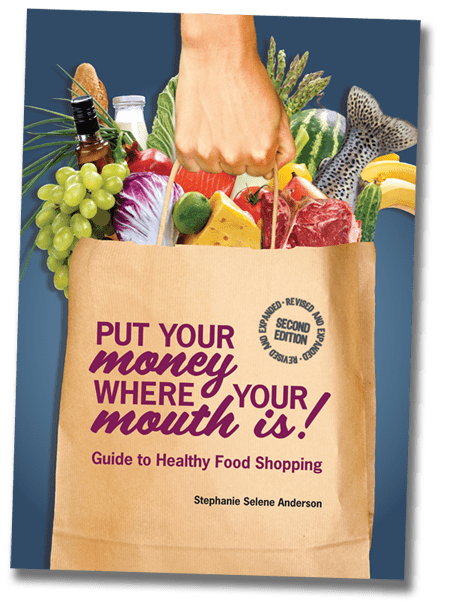 Put Your Money Where Your Mouth Is! – If you’re looking for a simple, friendly, in-depth guide that will actually help you make important decisions the next time you go food shopping, this book is for you. In addition to the many resources listed, you’ll learn how to shop for healthy food and what qualities make a food healthy to begin with.
Put Your Money Where Your Mouth Is! – If you’re looking for a simple, friendly, in-depth guide that will actually help you make important decisions the next time you go food shopping, this book is for you. In addition to the many resources listed, you’ll learn how to shop for healthy food and what qualities make a food healthy to begin with.
SRP Self-Health Starter Kit – This kit will teach you the basic principles of diet and health as revealed by Dr. Royal Lee and other great pioneers of nutrition. These truths continue to stand the test of time as the unproven theories of today fall by the wayside.
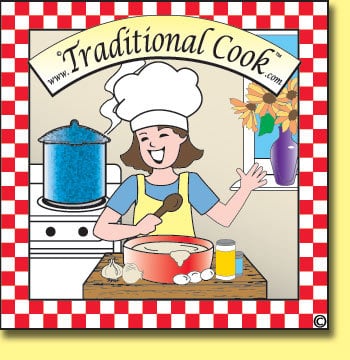 Grain Mills from the Traditional Cook – This is the world’s #1 rated grain mill in the mid-price range. See the video’s, and don’t forget to look at our Wonder Mixer.
Grain Mills from the Traditional Cook – This is the world’s #1 rated grain mill in the mid-price range. See the video’s, and don’t forget to look at our Wonder Mixer.
Photos from iStock/IvelinRadkov (main), amanalang (stumbling blocks), OcusFocus (woman cooking), VladimirFLoyd (woman with pot).
Note from Maria: I am a Certified Natural Health Professional, CNHP, not a medical doctor. I do not diagnose, prescribe for, treat, or claim to prevent, mitigate, or cure any human diseases. Please see your medical doctor prior to following any recommendations I make in my blogs or on my website.


